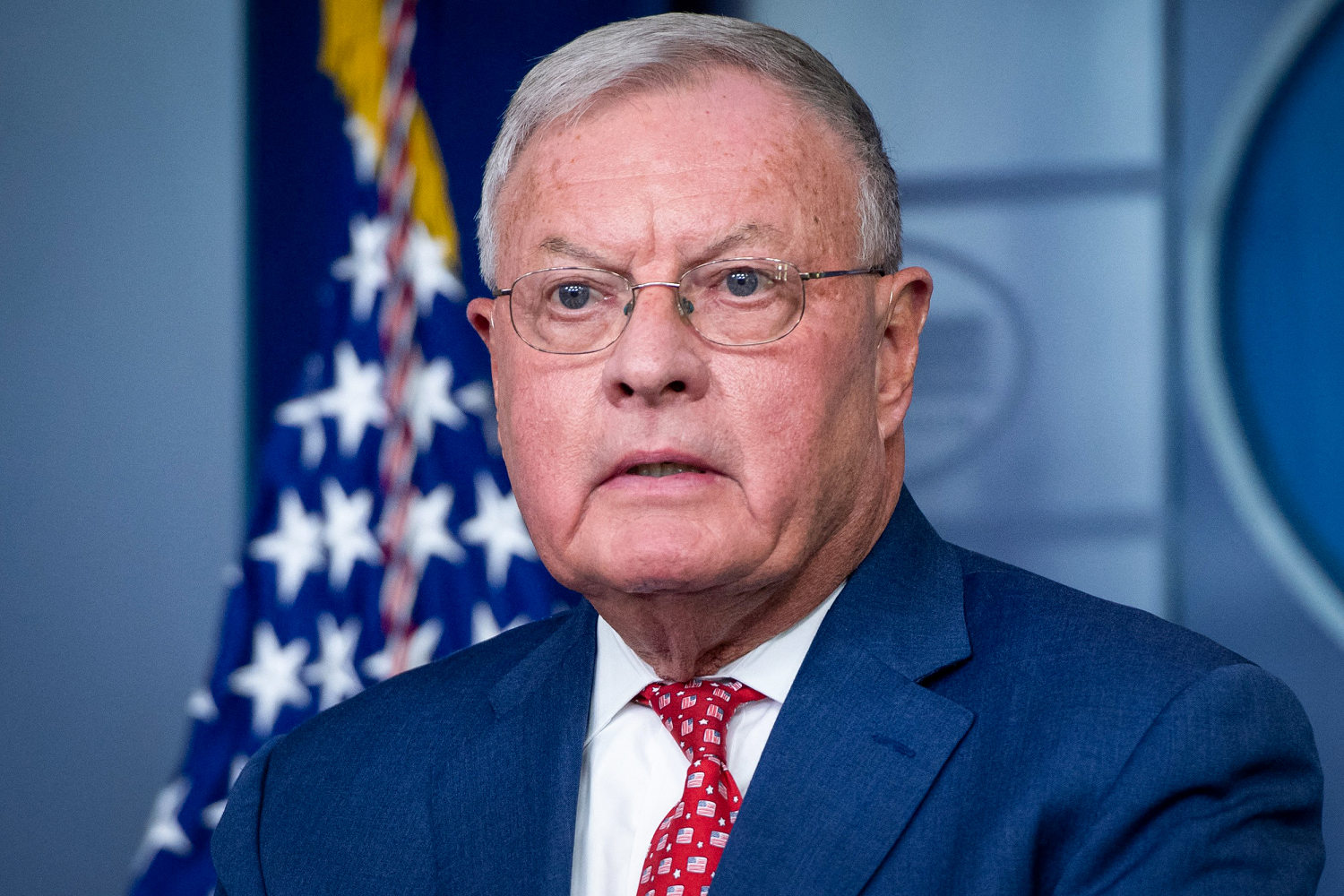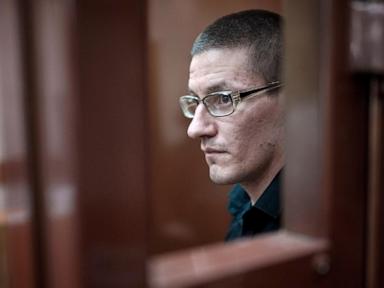Special treatment for Russia — a dangerous American tradition

Over the past 25 years, the circle of people and territory that fall under Russia’s sphere of aggression has grown, in part from a pervasive lack of political will. Since Vladimir Putin first took power in 2000, every hostile action or disregard for democratic norms by his regime tested the waters for more daring violations later on. Beginning with Presidents Clinton and Bush in the early 2000s, the U.S. response to the Kremlin’s malign activities has all too often been excessively deferential.
In 2000, a torpedo accident resulted in the sinking of the Russian submarine Kursk, killing most of the submariners but leaving 23 alive in the rear compartment of the sunken vessel. Attempts by the Russian navy to rescue the survivors were unsuccessful. As the crisis unfolded, the Kremlin willfully misled the public about the circumstances of the submarine’s sinking. Most egregiously, the Russian government refused foreign rescue assistance for four days, during which time the remaining submariners perished.
The Wall Street Journal would denounce the Kremlin’s response, noting the government’s continued prioritization of “the ‘national’ interest… over individual life.” In contrast, the State Department would only offer that it “had no further comment” besides expressing condolences and mentioning Washington’s offers to help the rescue mission. At a time when Russia had viable opposition parties and was arguably still reformable, U.S. sympathy for the families of the victims undeservedly extended to the government that enabled the tragedy.
President Putin began repressing Russia’s fledgling independent press early in his first term. Reporters who negatively portrayed the Kremlin during the Kursk crisis were fired and news outlets were forcibly sold to Putin’s cronies. While Putin paved the road to Russia’s current misinformation ecosystem, President Clinton consoled him over the public scrutiny he was receiving. Ten months later, President Bush would announce to the world that he had seen Putin’s soul and found a “trustworthy” counterpart.
Clinton’s actions and Bush’s comments were indicative of Washington’s unyielding interest in trying to find a cooperative partner where there was none. Putin then was already the man he is today. Political assassinations, press restrictions and overt election interference defined the Kremlin’s modus operandi in 2004, as they do in 2024. Deferential comments by senior U.S. officials in this early period added a veneer of legitimacy that inadvertently propped up the Kremlin’s increasingly authoritarian regime.
In 2004, as Russia engaged in “conspicuous and crude” interference in Ukraine’s presidential elections, the U.S. went to great lengths to avoid criticism of the Kremlin. During a press conference where journalists repeatedly asked about Moscow’s glaring involvement in the attempt to steal Ukraine’s election, Secretary of State Colin Powell would only note that he “had a good conversation with [Russian Foreign Minister] Lavrov” as they were “both interested in ... finding a solution.” Powell emphasized that the U.S. was “not looking for a contest with the Russians. … At a later time, one can talk about how we got into this situation.” The prevailing view was that while Ukraine should have free and fair elections, there was no need to call out the largest instigator of voter fraud and disenfranchisement.
By the end of Putin’s first term as president in 2004, the writing was arguably on the wall. Nonetheless, deference to the Russian Federation continued unabated. Amid a centralization of the Kremlin’s power and an escalation in media restrictions, Powell would only raise concerns over democratic backsliding “in the spirit of friendship and in the spirit of asking why some of these actions are taking place.” In the last year of his presidency, President Bush would invite Putin to his family’s estate in Maine — an honor granted to no other foreign leader.
Tragically, the outcome of the Kremlin’s special treatment by Washington over the years has been an increasingly more aggressive Russian Federation. Once indifference to Moscow’s rising authoritarianism was not met with a strong response, the Kremlin understood it could go further — and look beyond its borders. Despite decades of reverential outreach and appeals to partnership, President Putin chose to invade Ukraine anyway.
Washington’s excessive deference may very well be clearer in hindsight. Nonetheless, recognizing that the U.S. and its allies have bestowed unearned courtesy on Russia must lead policymakers to adopt a different course. The necessary paradigm shift should be defined by a stalwart and active defense of the free world against a tyranny that has gone unchecked for too long.
Artur Kalandarov is a senior associate at a strategic business advisory firm based in Washington, D.C., where he advises clients on business operations in Eastern Europe. His views do not necessarily reflect those of his firm.
Topics
-

Trump taps Keith Kellogg as special envoy to Ukraine and Russia
President-elect Trump on Wednesday announced his appointment of Keith Kellogg, a retired lieutenant general who served as chief of staff on Trump’s National Security Council during his first term, ...Politics - The Hill - 2 days ago -

Trump selects retired Gen. Keith Kellogg as special envoy to Russia, Ukraine
President-elect Donald Trump said Wednesday he will nominate retired Gen.Politics - NBC News - 2 days ago -

France may not enforce ICC arrest warrant for Benjamin Netanyahu
Rights groups and opposition politicians accuse government of U-turn to secure Israel-Lebanon ceasefire dealBusiness - Financial Times - 2 days ago -

Trump picks Keith Kellogg to serve as special envoy to Ukraine and Russia
Retired US army general and former Pence aide tapped for newly conceived role to negotiate amid ongoing war. Donald Trump has picked Keith Kellogg to serve as a special envoy for Ukraine and ...World - The Guardian - 2 days ago -

BlackRock has deal to buy private credit manager HPS
Transaction for prized lender could cost $12bn and be announced after Thanksgiving holidayBusiness - Financial Times - 2 days ago -
Trump taps Keith Kellogg as special envoy to Ukraine and Russia
President-elect Donald Trump has long promised that he could end the war in Ukraine on day one, and now he's tapped Ret. Lt. Gen. Keith Kellogg to help get the job done as special envoy to Ukraine ...Top stories - CBS News - 2 days ago -

Biden Discusses With Allies ‘Dangerous’ Cooperation Between Russia and North Korea
The president said stronger ties with South Korea and Japan are working, but did not address whether President-elect Donald J. Trump would continue his approach when he takes office in January.World - The New York Times - November 16 -
Former Rear Adm. breaks down Trump's Russia, Ukraine special envoy pick
President-elect Donald Trump selected retired three-star army Lt. Gen. Keith Kellogg on Wednesday to be his special envoy to Russia and Ukraine. Retired Navy Rear Adm. Mark Montgomery joins "The ...Top stories - CBS News - 2 days ago -

American convicted on drug-related charges in Russia loses appeal
A court in the Russian capital has rejected an American citizen’s appeal against against his sentence on drug-related chargesWorld - ABC News - November 5
More from The Hill
-

Democrats look to governors to lead them to promised land
Politics - The Hill - 18 minutes ago -

Why I believe in Robert F. Kennedy Jr.
Politics - The Hill - 18 minutes ago -

Moulton says Trump won because of vision: 'However twisted and unconscionable'
Politics - The Hill - 59 minutes ago -

New York State senator launches bid for DNC chair
Politics - The Hill - 1 hour ago -

Trump’s pick to lead the FCC poses a threat to free speech
Politics - The Hill - 1 hour ago